One of the dreams of many first-year students at Sungkyunkwan University (SKKU) might be watching a play in Daehak-ro with their friends or seniors. Due to the maintenance of the coronavirus disease 2019 (COVID-19), fewer people are visiting Daehak-ro than before; however, it is still loved by many people. There are diverse genres in plays such as romance, comedy, and mystery, and a theater director plays a crucial role in expressing the appropriate characteristics and themes of a play. The Sungkyun Times (SKT) would like to introduce Professor Lee Kyung-sung, who belongs to Creative VaQi and is currently working as a theater director.
Lee Kyung-sung, the Theater Director
Q1. Please introduce yourself.
My name is Lee Kyung-sung. I am currently working as a theater director in the theater company named Creative VaQi, and teaching students in the School of Arts at SKKU. Besides this, I am the artistic director of the Seoul Theater Festival that will be held in July this year.
Q2. What made you become a theater director?
I majored in theater production and decided to do this for the rest of my life when I visited the Avignon Festival. I did not understand the performances due to the language barrier. Still, I witnessed those performances changing the whole village’s atmosphere when the actors drank wine and talked about the performance with the audiences. Therefore, I realized that communicating with people by producing plays will fulfill my life, and this realization further made me decide to become a theater director.
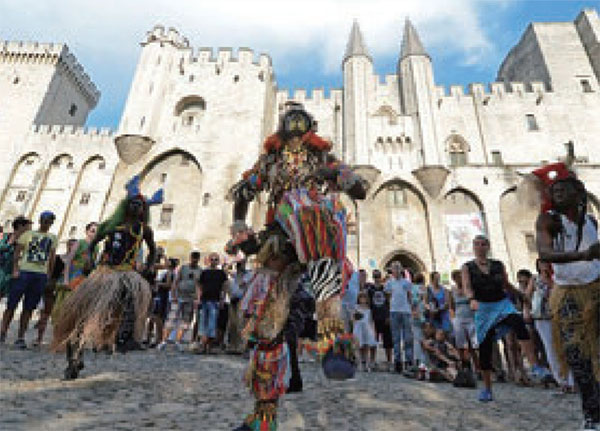
Q3. What is theater production to you?
To be honest, working as a theater director does not bring me wealth or fame, nor does it make me Director Bong Joon-ho. I produce small pieces, but through those works, I consistently connect myself to the world. By directing a play, I find out the connectivity that I wasn’t able to detect before. Furthermore, in making a play, I agonize about how to live a better life. When I finish a play with my colleagues, we hope to be in a state where we can better understand the world. Also, theater production is a work to develop my imagination about others. There are a lot of thoughts and pain of others that I cannot think of, but I can imagine and take a closer step towards them through producing plays.
Q4. If you co-create with the members in Creative VaQi, the director’s role may be a little different from the original roles of a theater director. Please explain the roles you play in the company and the process of work you take.
Usually, the director casts actors according to the original text written by the writers. However, we do not start from the writer’s text. Instead, we choose a topic by discussing what we can study and what issues should be publicized and artistically communicated to people. After studying the topic, we structuralize the scenes through workshops, then perform to the audiences. That being said, I could be a proposer, a workshop host, or a consultant. I believe that all these roles are included in the roles of a theater director because it is possible to produce the result when the process is made. Building the process of the work is the key to create a play.
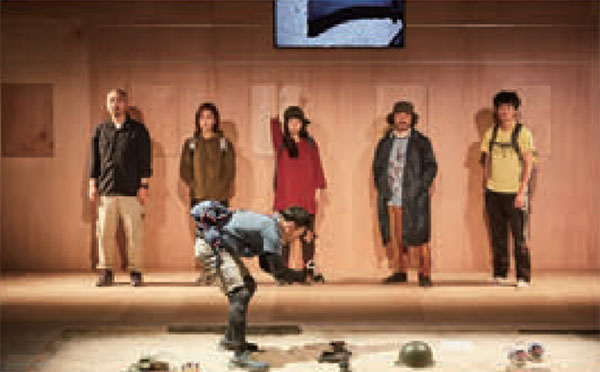
Director Lee Kyung-sung’s Unique Activities
Q5. What is the most memorable episode among your experiences as a theater director?
it is when we made a performance with the mothers of the families of the Sewol ferry disaster in 2016. We interviewed five mothers about how exuberant the world was when their daughters were alive and put the content into the play Talking of Her. At that time, the mothers held picketing protests in front of Hyoja-dong, the Blue House, every day. Since there was an atmosphere of oppression to the news related to Sewol, we thought it was essential to unite with them instead of just producing the play. Therefore, we participated in picketing protests with them every morning for an hour. Through those times, we agonized about the purposes of us producing the play.
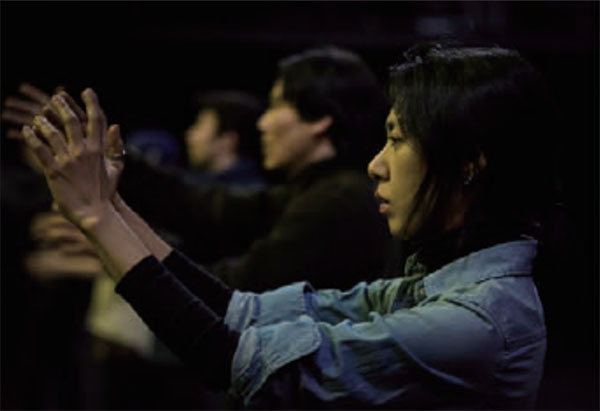
Q6. One of your plays, Let Us Move Your Sofa (2010), gives the audience a unique experience by making them walk around the places in Gwanghwamun with a given map. Please introduce this play.
Gwanghwamun is a place with a lot of regulations. Even though it is a public square, citizens cannot stay as free as they want. So, we wanted to make this space a public place where people can stay as long as they want by doing independent experiences. Numerous writers gathered to study the Gwanghwamun Square and make a Gwanghwamun map by applying their perspectives for this play. Then, the audiences use those maps to walk around the Gwanghwamun Square for an hour and watch simultaneous performances. Also, in the middle of the play, one actor requests the citizen to move the sofa together and continues the performance. Through this play, we wanted the audience to practice having individual experiences in the public space. There are many public regulations in this city, so we worked on visualizing those regulations through the play. I could say that our works are performative. We do not practice with the text in a practice room, but rather we try to constantly connect our experiences and thoughts to the reality outside the theater. We always try to produce plays that influence reality, not plays that just disappear in the theater.
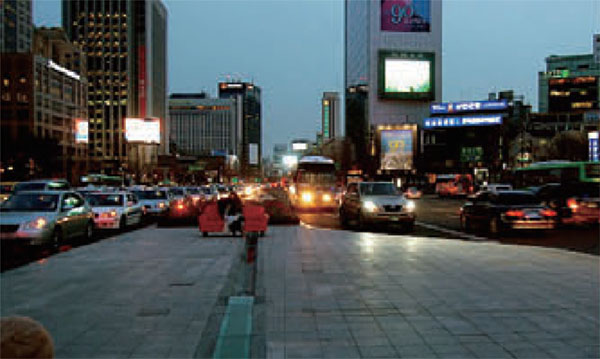
Q7. Is there any special reason why you chose to have an online performance through Zoom instead of broadcasting the video when performing Borderline?
Last year, Borderline, a play produced by both Korean and German actors, was performed targeting German audiences. The German audiences watched the German actors at the theater and the Korean actors through the screen installed in the theater. The play was like a conversation between the German actors in the theater and the Korean actors on the screen. Even though we weren’t able to perform together physically, we still wanted to perform at the same time, so the German actors gathered at 7 p.m. at the theater, and the Korean actors gathered at 2 a.m. at the empty office and performed in real-time. I believe there were tensions and emotions delivered through the live performance. Borderline will be performed to Korean audiences this year, and we are not sure in what way we will perform due to the changing COVID-19 situation, but visit us if you can!
In the Future of Lee Kyung-sung
Q8. What genre do you want to try in the future?
I would like to produce a play that lasts for three days in which the play can progress by doing a tour with the audiences. I don’t know what the play will be about yet, but I just want the play to be continued for three days while having fun together at the same time.
Q9. What kind of memories do you wish for the audience to have after watching a play that you directed?
To have good communication through the play, both the director and the audience should endure risks. I have to take a risk by considering how audiences respond to the play, and the audiences have to take a chance by watching the performance even if they think it is time or money consuming. It would be nice if the audiences have new experiences when they watch the play. Therefore, I hope people realize that they could have a very meaningful time even though they are taking a risk and trying a new experience.
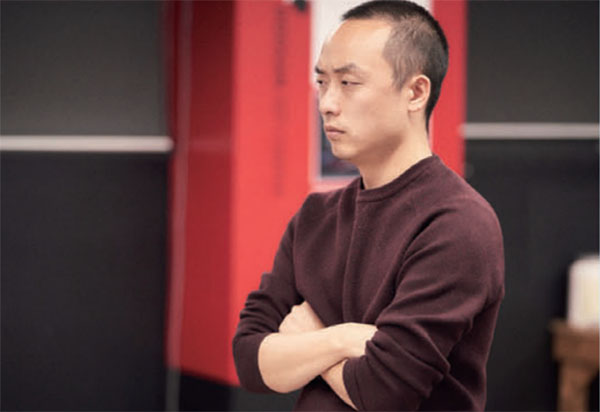
Q10. Any last words for the Kingos?
This may be a staid answer, but as you might have already felt, universities nowadays are getting very practical. After getting into the university, thoughts about preparation for a job and after graduation are limiting school life. However, as the word university (大學) implies, I think that a university is a place where you can ask big questions. Your university life will be much more meaningful if you graduate with a big question. If the four years of university life are focused only on the job and the future, it will be a minus in the bigger picture of life. Regardless of your major, I hope you could have one question in your heart and enjoy your university life.
